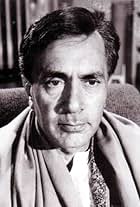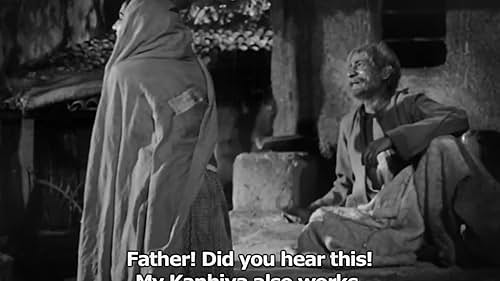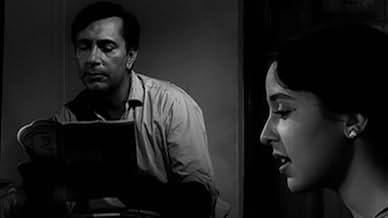Balraj Sahni(1913-1973)
- Actor
- Writer
- Director
Balraj Sahni, born in Rawalpindi, British India (present-day Pakistan), was an acclaimed Indian film and stage actor. Known for his powerful and impactful performances, Balraj Sahni became a prominent figure in the golden era of Indian cinema.
Balraj Sahni initially pursued a career in the civil service but eventually found his true calling in acting. He became associated with the Indian People's Theatre Association (IPTA), a leftist cultural organization, where he honed his skills and passion for acting. His association with IPTA marked the beginning of his journey in theater.
Balraj Sahni made his film debut in 1946 with the film "Insaaf," but he gained widespread recognition and acclaim for his role in the film "Do Bigha Zamin" (1953), directed by Bimal Roy. His portrayal of Shambhu Mahato, a poor farmer struggling to save his land, showcased his acting prowess and earned him accolades. The film won the International Prize at the Cannes Film Festival in 1954.
Throughout the 1950s and 1960s, Balraj Sahni delivered memorable performances in films such as "Kabuliwala" (1961), "Waqt" (1965), and "Neel Kamal" (1968). He often played roles that reflected the socio-economic realities of the time, and his ability to bring depth and authenticity to his characters set him apart as one of the finest actors in Indian cinema.
Balraj Sahni's filmography includes a diverse range of roles, from intense and dramatic characters to light-hearted and comedic ones. He collaborated with renowned filmmakers like Bimal Roy, Guru Dutt, and Yash Chopra, leaving an indelible mark on Indian cinema.
Apart from his acting career, Balraj Sahni was also a noted writer and penned several books, including his autobiography "Meri Filmi Aatmakatha" (My Filmy Autobiography).
Balraj Sahni's contribution to Indian cinema was not only recognized within the industry but also by the government. He received the Padma Shri, one of the highest civilian awards in India, in 1969. Unfortunately, Balraj Sahni's life was cut short, and he passed away on April 13, 1973, leaving behind a legacy of remarkable performances and a lasting impact on Indian cinema.
Balraj Sahni initially pursued a career in the civil service but eventually found his true calling in acting. He became associated with the Indian People's Theatre Association (IPTA), a leftist cultural organization, where he honed his skills and passion for acting. His association with IPTA marked the beginning of his journey in theater.
Balraj Sahni made his film debut in 1946 with the film "Insaaf," but he gained widespread recognition and acclaim for his role in the film "Do Bigha Zamin" (1953), directed by Bimal Roy. His portrayal of Shambhu Mahato, a poor farmer struggling to save his land, showcased his acting prowess and earned him accolades. The film won the International Prize at the Cannes Film Festival in 1954.
Throughout the 1950s and 1960s, Balraj Sahni delivered memorable performances in films such as "Kabuliwala" (1961), "Waqt" (1965), and "Neel Kamal" (1968). He often played roles that reflected the socio-economic realities of the time, and his ability to bring depth and authenticity to his characters set him apart as one of the finest actors in Indian cinema.
Balraj Sahni's filmography includes a diverse range of roles, from intense and dramatic characters to light-hearted and comedic ones. He collaborated with renowned filmmakers like Bimal Roy, Guru Dutt, and Yash Chopra, leaving an indelible mark on Indian cinema.
Apart from his acting career, Balraj Sahni was also a noted writer and penned several books, including his autobiography "Meri Filmi Aatmakatha" (My Filmy Autobiography).
Balraj Sahni's contribution to Indian cinema was not only recognized within the industry but also by the government. He received the Padma Shri, one of the highest civilian awards in India, in 1969. Unfortunately, Balraj Sahni's life was cut short, and he passed away on April 13, 1973, leaving behind a legacy of remarkable performances and a lasting impact on Indian cinema.
























